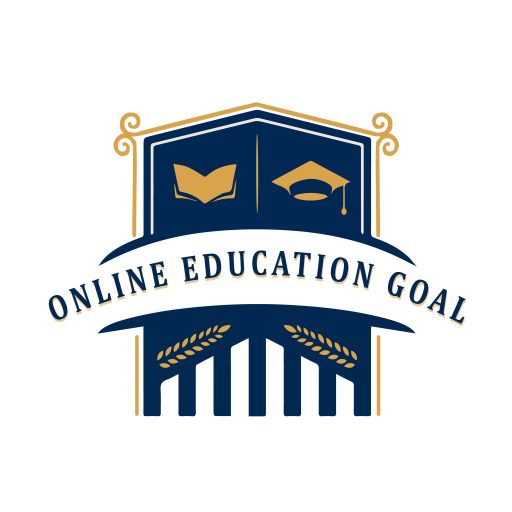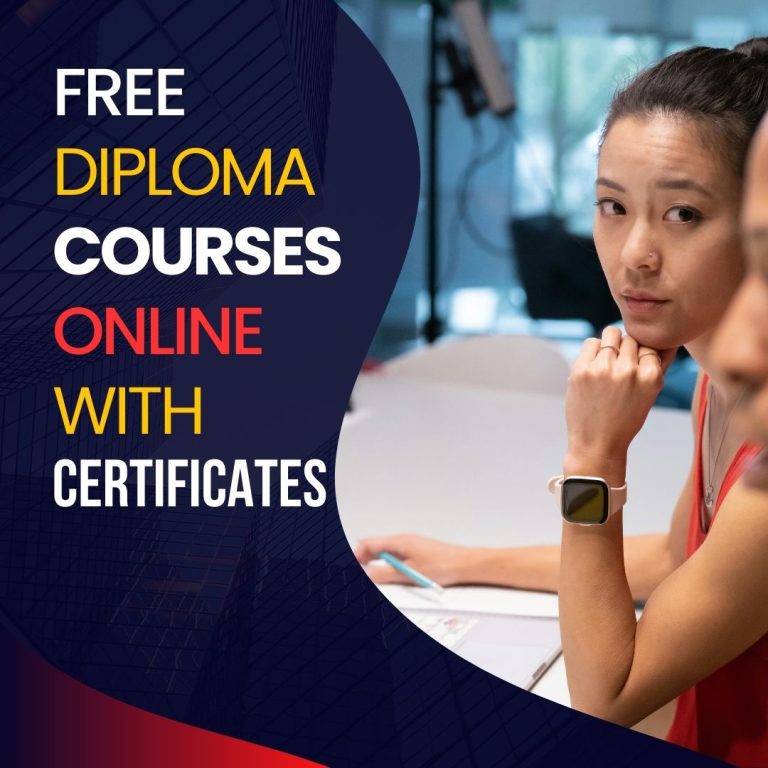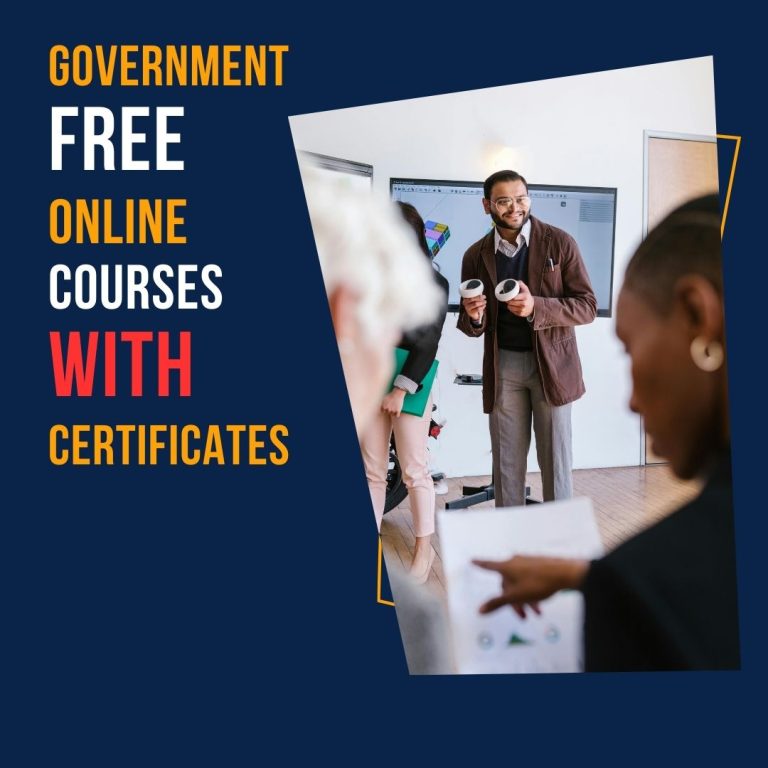What is Online Course: Unlock Learning Freedom
An online course is a digitally delivered education program accessed via the internet. It allows learners to study remotely.
Online courses offer flexible learning opportunities for a diverse audience. They cover various subjects, from academic disciplines to professional skills. Users can access course materials, video lectures, and assignments at their convenience. This format appeals to those balancing work, family, or other commitments.
Many platforms also offer interactive elements like discussion forums and live sessions. Online courses often include assessments and certifications, enhancing career prospects. They democratize education by breaking geographical barriers and reducing costs. With the rise of digital technology, online learning continues to grow in popularity and effectiveness.
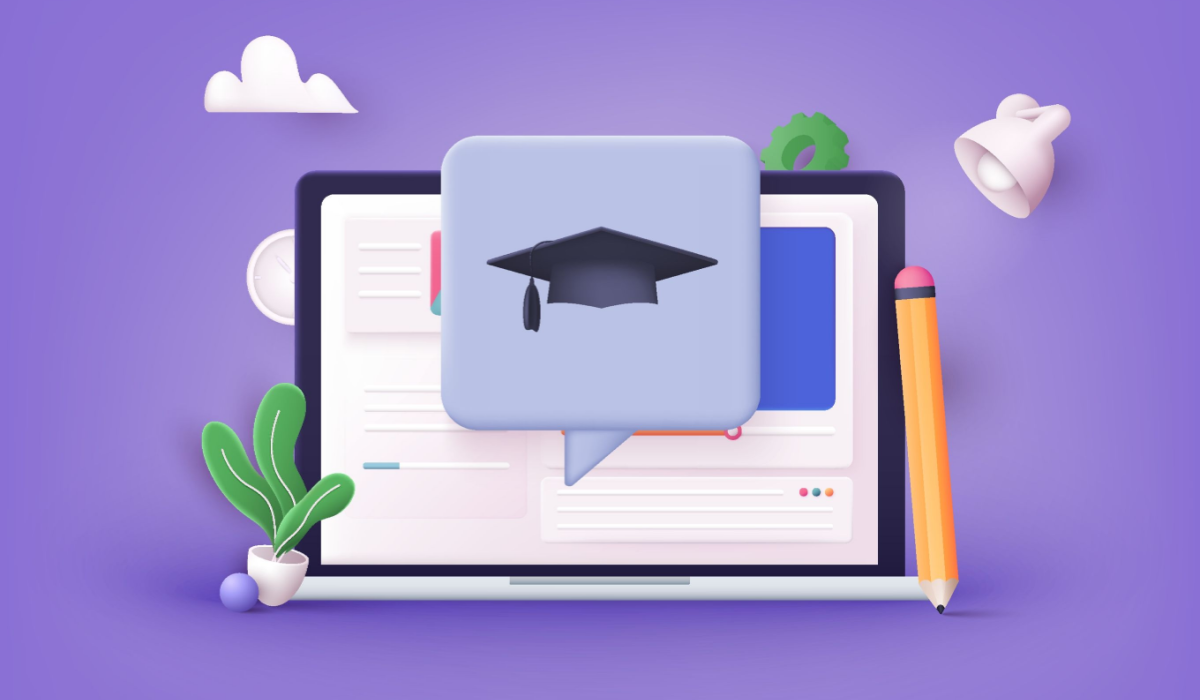
Credit: foundr.com
The Evolution Of Online Learning
The world of education has seen significant changes over the years. One of the most notable shifts is the rise of online learning. This evolution has transformed how we access and consume educational content.
From Correspondence Courses To Digital Classrooms
In the past, correspondence courses were the primary method for distance learning. Students received materials through the mail and sent back their completed assignments.
With the advent of the internet, these courses evolved into digital classrooms. Now, learners can access materials online, participate in discussions, and submit assignments electronically.
This shift has made education more accessible and convenient for people around the world.
Technological Advancements Shaping Education
Several technological advancements have played a crucial role in shaping online education. Here are some key innovations:
- High-speed internet: Faster connections allow for seamless streaming of video lectures and real-time interactions.
- Learning Management Systems (LMS): Platforms like Moodle and Canvas help educators organize and deliver content efficiently.
- Mobile learning: Smartphones and tablets enable students to learn on the go, breaking the barriers of location and time.
- Artificial Intelligence: AI tools provide personalized learning experiences and automate administrative tasks.
- Virtual and Augmented Reality: VR and AR create immersive learning environments, making complex subjects more engaging.
| Technology | Impact |
|---|---|
| High-speed Internet | Enables seamless video streaming and real-time interactions |
| LMS | Organizes and delivers content efficiently |
| Mobile Learning | Facilitates learning anywhere, anytime |
| AI | Provides personalized learning experiences |
| VR and AR | Creates immersive learning environments |
Defining The Online Course
Online courses have revolutionized education. They provide flexibility and accessibility for learners worldwide. Understanding what an online course entails is essential for anyone considering this modern learning method.
Key Components Of Virtual Learning Environments
Virtual learning environments, or VLEs, are platforms used to deliver online courses. They include several key components:
- Interactive Lessons: Lessons often include videos, quizzes, and discussion boards.
- Course Materials: These may consist of eBooks, articles, and lecture notes.
- Communication Tools: Tools like forums, chat rooms, and emails help students communicate.
- Assessment Methods: Online tests, assignments, and projects measure student understanding.
Varieties Of Online Courses Available
There are many types of online courses to suit different needs and interests. Some of the common varieties include:
- Self-Paced Courses: Students learn at their own pace without strict deadlines.
- Instructor-Led Courses: These courses have scheduled sessions and deadlines.
- Certification Programs: These provide a certificate upon completion.
- Degree Programs: Full degree programs offered entirely online.
- Professional Development Courses: Short courses aimed at skill enhancement.
Online courses offer something for everyone. From self-paced learning to full degree programs, there’s an option to fit every learner’s needs.
Benefits Of Online Learning
Online learning has transformed education. It offers numerous benefits that make it attractive. Students can learn at their own pace and schedule. The advantages are vast and significant.
Flexibility And Convenience For Learners
Flexibility is a key benefit of online learning. Students can study at any time. This suits those with busy schedules. They can balance work, family, and education.
Convenience is another major benefit. Learners can access courses from anywhere. There is no need to travel or relocate. This saves time and money.
Online courses offer the following conveniences:
- Study from home
- Avoid commuting
- Access materials anytime
- Learn at your own speed
Access To Global Knowledge And Resources
Online learning provides access to a wide range of resources. Students can learn from experts around the world. This broadens their perspectives and knowledge.
With online courses, learners can:
- Access global libraries and databases
- Participate in international forums and discussions
- Utilize multimedia resources for better understanding
This access to global knowledge enriches the learning experience. It opens doors to new opportunities and networks.
Choosing The Right Online Course
Choosing the right online course is crucial for your learning journey. With so many options, it’s essential to know what to look for.
Criteria For Selecting Quality Programs
When selecting an online course, consider these key criteria:
- Course Content: Ensure the course covers topics you are interested in.
- Instructor Expertise: Check the background and experience of the instructor.
- Course Format: Decide if you prefer video lectures, readings, or interactive sessions.
- Flexibility: Make sure the course fits your schedule and learning pace.
- Reviews and Ratings: Read reviews from past students to gauge the course quality.
Recognizing Accreditation And Credibility
Accreditation and credibility are vital indicators of a course’s quality. Here’s what to look for:
- Accredited Institutions: Choose courses from accredited schools or universities.
- Certifications: Ensure the course provides a recognized certification upon completion.
- Industry Recognition: Look for courses endorsed by industry leaders or organizations.
- Instructor Credentials: Verify the instructor’s qualifications and professional background.
Below is a table summarizing these criteria:
| Criteria | Details |
|---|---|
| Course Content | Relevant topics and comprehensive coverage. |
| Instructor Expertise | Experienced and knowledgeable instructors. |
| Course Format | Preferred learning methods and interaction level. |
| Flexibility | Courses that fit your schedule. |
| Reviews and Ratings | Feedback from previous students. |
| Accredited Institutions | Officially recognized schools or universities. |
| Certifications | Valid certification upon completion. |
| Industry Recognition | Endorsed by industry leaders. |
| Instructor Credentials | Qualified and experienced instructors. |
Learning Freedom Unlocked
Unlocking learning freedom is a revolutionary concept in education. Online courses offer unparalleled flexibility and personalization. This allows students to learn at their own pace, anywhere, anytime. With the advent of digital learning platforms, the boundaries of traditional education are expanding. Let’s delve into how online courses provide learning freedom.
Personalized Learning Paths
Personalized learning paths empower students to tailor their education. Each learner can choose courses that match their interests and career goals. Online platforms often use algorithms to suggest courses based on individual progress.
This ensures that no two learning journeys are the same. Students can focus on subjects they find challenging. They can also advance quickly through topics they already understand. This level of customization makes learning more effective and engaging.
Here’s a quick comparison between traditional and personalized learning:
| Traditional Learning | Personalized Learning |
|---|---|
| Fixed curriculum | Customizable curriculum |
| Set pace | Flexible pace |
| One-size-fits-all | Individualized approach |
Balancing Work, Life, And Education
Balancing work, life, and education is easier with online courses. Working professionals can study during breaks or after work. Parents can learn while their children are at school or asleep. This flexibility reduces stress and makes it easier to manage responsibilities.
Online courses often provide materials in various formats like videos, texts, and quizzes. This allows learners to choose how they consume information. They can watch a lecture during their commute or read a textbook chapter on the weekend.
Here are some tips to balance your life while taking online courses:
- Create a study schedule and stick to it.
- Set realistic goals and milestones.
- Take breaks to avoid burnout.
- Use productivity tools to manage your time.
- Communicate with family and employers about your study plans.
These strategies can help you stay organized and focused. Balancing multiple aspects of life becomes manageable. The flexibility of online learning supports this balance effectively.

Credit: www.ice.cam.ac.uk
Challenges In Online Education
Online education offers flexibility and accessibility, but it comes with its own set of challenges. These challenges can affect both students and educators, potentially hindering the learning process. Understanding these challenges can help in developing strategies to overcome them.
Overcoming Isolation And Lack Of Motivation
One major challenge in online education is the feeling of isolation. Students may miss the social interaction that traditional classrooms provide. This can lead to lack of motivation and engagement.
Here are some strategies to overcome isolation:
- Create virtual study groups to foster a sense of community.
- Use discussion forums to encourage student interaction.
- Schedule regular video conferences for face-to-face communication.
To tackle lack of motivation:
- Set clear and achievable goals.
- Provide timely feedback and encouragement.
- Incorporate interactive and engaging content.
Ensuring Academic Integrity
Maintaining academic integrity is another significant challenge in online education. The absence of physical supervision can lead to concerns about cheating and plagiarism.
Here are some ways to ensure academic integrity:
- Use plagiarism detection software to check student submissions.
- Design assessments that require higher-order thinking and application.
- Implement timed exams with randomized questions.
- Encourage an honor code and emphasize its importance.
These strategies can help maintain the quality and credibility of online education.
Technological Tools For Enhanced Learning
Online courses have transformed education by using advanced technology. These tools make learning engaging and interactive. They also cater to various learning styles. This section explores the key technological tools that enhance online learning experiences.
Interactive Platforms And Software
Interactive platforms are vital for online learning. They offer features like discussion boards, live chats, and video conferencing. These features help students interact with peers and instructors.
- Discussion Boards: Allow students to post questions and share insights.
- Live Chats: Enable real-time communication during lessons.
- Video Conferencing: Facilitates face-to-face interactions.
Software solutions like Learning Management Systems (LMS) are also crucial. They help in tracking progress and managing course materials. Popular LMS platforms include Moodle, Canvas, and Blackboard.
| Platform | Key Features |
|---|---|
| Moodle | Customizable and open-source |
| Canvas | User-friendly interface |
| Blackboard | Robust analytics |
The Role Of Artificial Intelligence In Education
Artificial Intelligence (AI) is revolutionizing online education. AI helps in personalizing learning experiences. It adapts courses based on individual student needs.
- Personalized Learning Paths: AI tailors content to match student progress.
- Automated Grading: Saves time for instructors and provides instant feedback.
- Chatbots: Assist students with queries 24/7.
AI can also predict student performance. It identifies areas where students struggle. This helps in providing timely interventions.
The use of AI in online courses ensures that every student receives the attention they need. This leads to better learning outcomes.
The Future Of Online Courses
Online courses are transforming how we learn. They offer flexibility and access to knowledge from anywhere. As technology advances, online learning is evolving rapidly. Let’s explore the future of online courses and how they will shape education.
Emerging Trends In E-learning
E-learning is growing fast. New trends are making it more interactive and engaging. Here are some key trends:
- AI and Machine Learning: Personalized learning paths based on student performance.
- Gamification: Using game elements to make learning fun and competitive.
- Virtual Reality (VR): Immersive experiences that simulate real-life scenarios.
- Microlearning: Short, focused lessons that fit into busy schedules.
- Mobile Learning: Access courses on smartphones and tablets.
The Potential For Lifelong Learning
Lifelong learning is becoming more important. People need to update skills throughout their lives. Online courses make this possible. They offer flexibility and variety.
Here are some benefits of lifelong learning through online courses:
| Benefits | Description |
|---|---|
| Flexibility | Learn at your own pace, anytime, anywhere. |
| Variety | Wide range of subjects and courses available. |
| Cost-Effective | Often cheaper than traditional classroom learning. |
| Accessibility | Accessible to people with different needs and backgrounds. |
Online courses are the future of education. They provide opportunities for everyone to learn and grow.
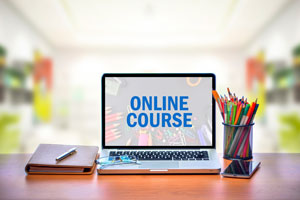
Credit: campustechnology.com
Frequently Asked Questions
What Is An Example Of An Online Course?
An example of an online course is “Introduction to Data Science” offered by Coursera. This course covers data analysis, machine learning, and statistical techniques.
What Counts As An Online Course?
An online course is a digital learning program accessible via the internet. It includes video lectures, readings, and interactive assignments.
What Is An Online Course Called?
An online course is called an e-learning course or digital course. It offers virtual lessons via the internet.
What Happens In An Online Course?
In an online course, students access lessons, complete assignments, and participate in discussions through a digital platform.
Conclusion
Online courses offer flexible, accessible education for everyone. They cater to various interests and skill levels. Embrace the convenience and opportunities they provide. With dedication, you can achieve your learning goals. Explore different platforms to find the best fit for your needs.
Start your educational journey today and unlock your potential.
